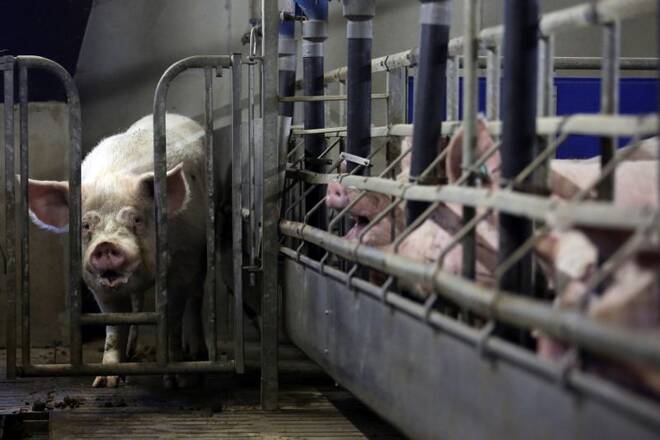Advertisement
Advertisement
Exclusive – Investors warn EU against badging intensive farming as sustainable
By:
By Simon Jessop and Kate Abnett LONDON/BRUSSELS (Reuters) - A group of global investors representing more than $3.5 trillion in assets has urged the European Commission not to allow intensive farming to be badged as a sustainable activity in upcoming rules, a letter seen by Reuters showed.
By Simon Jessop and Kate Abnett
LONDON/BRUSSELS (Reuters) – A group of global investors representing more than $3.5 trillion in assets has urged the European Commission not to allow intensive farming to be badged as a sustainable activity in upcoming rules, a letter seen by Reuters showed.
The bloc is in the final stages of defining what activities can be considered climate-friendly, a move it hopes will incentivise more investment to help the region cut its emission of greenhouse gases.
It has been tough, however, to reach political agreement on what activities to include in the “taxonomy”, with the nuclear, gas and farming industries all subject to lobbying by countries and trade bodies keen to retain access to finance.
After writing to Commission President Ursula von der Leyen on Oct. 5, the investor group said it was making its position public after a leaked paper circulated among EU governments proposed that a large chunk of agricultural subsidies should be labelled green.
Auditors say these subsidies often have dubious climate benefits, and some support intensive farming.
As well as carbon emissions, the letter said intensively reared livestock also had negative impacts on biodiversity, water use, antimicrobial resistance and soil health and “should not be included in the EU Taxonomy as it stands”.
The Commission was not immediately available to comment when contacted by Reuters.
“It is critical that the EU Taxonomy only defines as green those sectors that are genuinely environmentally sustainable,” said Helena Wright, Policy Director at the FAIRR Initiative, an investor group focused on the risks of intensive farming and which coordinated the letter to the Commission.
“It is deeply concerning to see a proposal that would count EU agricultural subsidies as green, when we know that many of these subsidies are harmful,” she said.
Signatories to the letter include Britain’s biggest asset manager Legal & General Investment Management, Aviva Investors, Storebrand and the international business of U.S. asset manager Federated Hermes.
Farming is responsible for around 10% of the EU’s greenhouse gas emissions, yet its role in the EU rules is politically contentious given the large number of people it employs.
The letter was released a day after the European Parliament approved reforms to farming subsidies under the Common Agricultural Policy (CAP) to give more money to smaller farmers using more sustainable farming methods.
Under the new rules, at least 10% of CAP funds will go to smaller farms and all payments would be tied to complying with environmental rules.
Badging intensive farming subsidies as “green” risked undermining the bloc’s climate goals, Wright said.
Alexander Burr, who leads on environmental, social and governance-related policy issues at Legal & General IM said the taxonomy needed to be science-based.
“It must support the transition to net zero economies, and agriculture is a key but often overlooked sector within this,” Burr said.
“In this regard, we encourage the EU not to create potential policy loopholes in the agricultural sector that would weaken and undermine the robustness of the framework.”
(Editing by David Evans)
About the Author
Reuterscontributor
Reuters, the news and media division of Thomson Reuters, is the world’s largest international multimedia news provider reaching more than one billion people every day. Reuters provides trusted business, financial, national, and international news to professionals via Thomson Reuters desktops, the world's media organizations, and directly to consumers at Reuters.com and via Reuters TV. Learn more about Thomson Reuters products:
Advertisement
